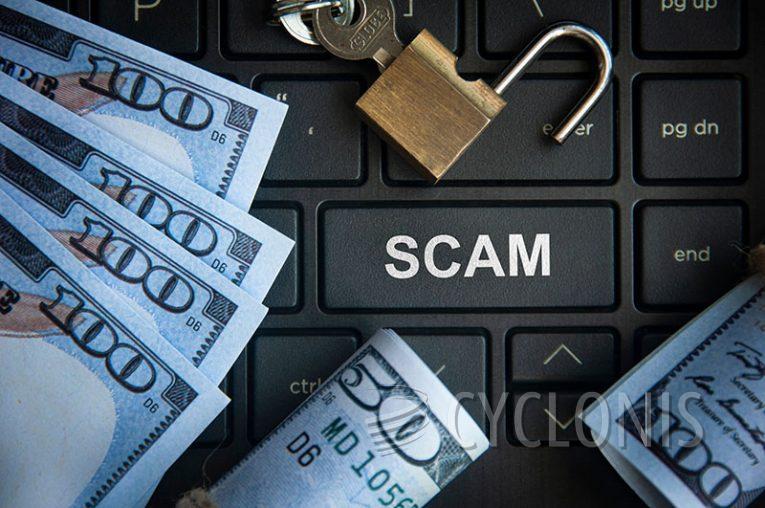Solana L2 Presale Scam: What Does It Want?

Table of Contents
A Fraudulent Presale Targeting Crypto Users
An online scam disguised as a "Solana L2 Presale" has been making rounds. This phishing scheme attempts to trick cryptocurrency users into divulging their wallet credentials, ultimately leading to financial theft. It is crucial to note that this so-called presale has no connection to the legitimate Solana blockchain platform.
Researchers uncovered this deceptive campaign on a site hosted at dashboard-solaxy.pages.dev, but scammers may use other domains to lure victims. Regardless of the hosting platform, this scam is designed to look like an official cryptocurrency presale event, deceiving users into believing they are getting early access to an exclusive token offering.
How the Scam Operates
Users who attempt to participate in this bogus presale are asked to connect their cryptocurrency wallets by entering their log-in credentials. However, instead of being linked to a legitimate presale event, scammers capture the information provided. Once the fraudsters gain access to a victim's wallet, they can transfer all available funds, leaving the victim with no recourse.
Cryptocurrency transactions are generally irreversible. This means that once funds are stolen, they cannot be retrieved. The anonymous nature of blockchain transactions further complicates the process of tracking down cybercriminals behind such schemes.
Common Techniques Used in Crypto Scams
Cryptocurrency scams typically fall into three categories: phishing, wallet draining, and deceptive transfers. In phishing scams like the Solana L2 Presale, attackers obtain login credentials to directly access and empty wallets. Wallet-draining schemes, on the other hand, use malicious smart contracts to siphon funds from compromised accounts. Some scams manipulate victims into voluntarily transferring assets to fraudulent wallets, usually under the pretense of receiving greater returns or rewards.
Similar scams have emerged under various names, including the "GROK Presale Scam," "Deep Token Presale Scam," and fake versions of well-known cryptocurrency platforms like "Tornado Cash" and "AMLBot." These fraudulent schemes highlight a growing trend of attackers exploiting cryptocurrency investors through fake offerings.
How These Scams Spread
Fraudulent cryptocurrency presales are primarily promoted through rogue advertising networks, deceptive social media campaigns, and spam messages. These scams usually appear on social media platforms through posts or direct messages from hacked accounts that originally belonged to trusted entrepreneurs, influencers, or crypto-related businesses.
Additionally, scammers use intrusive pop-up advertisements to attract potential victims. Some of these pop-ups themselves function as crypto-draining tools, luring users into connecting their wallets under the false promise of exclusive benefits or high-yield rewards. Even legitimate websites can inadvertently host these ads if cybercriminals have compromised them.
How to Protect Yourself from Cryptocurrency Scams
Vigilance is key when navigating the online crypto space. Many scams rely on creating a sense of urgency or offering deals that appear too good to pass up. Here are some important steps to stay safe:
- Verify the Legitimacy of Presales – Always check official sources before participating in any cryptocurrency presale. Visit the project's official website, social media pages, and trusted cryptocurrency news sites to confirm authenticity.
- Be Cautious of Suspicious Websites – Avoid clicking links from unknown sources, and always double-check URLs before entering any sensitive information. If a website asks for wallet credentials, be highly skeptical.
- Use Secure Wallet Practices – Never share private keys or recovery phrases with anyone. Utilize multi-factor authentication (MFA) whenever possible to add an additional security layer to your wallet.
- Avoid Enabling Browser Notifications from Unknown Sites – Many scam websites attempt to send intrusive pop-ups that can lead to malware infections or deceptive login pages.
- Be Wary of Social Media Promotions – Scammers often hijack accounts to spread fraudulent cryptocurrency deals. If a presale is being promoted via direct messages, posts from unfamiliar accounts, or suspicious-looking profiles, proceed with caution.
Final Thoughts
As the cryptocurrency market constantly evolves, scammers are finding new ways to exploit unsuspecting users. Fake presales, phishing campaigns, and fraudulent investment opportunities are becoming increasingly sophisticated. Staying informed about these threats and adopting good security practices can substantially reduce the risks of such schemes.
If you remain cautious and double-check before engaging in any cryptocurrency-related activity, users can protect their digital assets from cybercriminals. The key takeaway is simple: if an opportunity seems too good to be true, it probably is.








